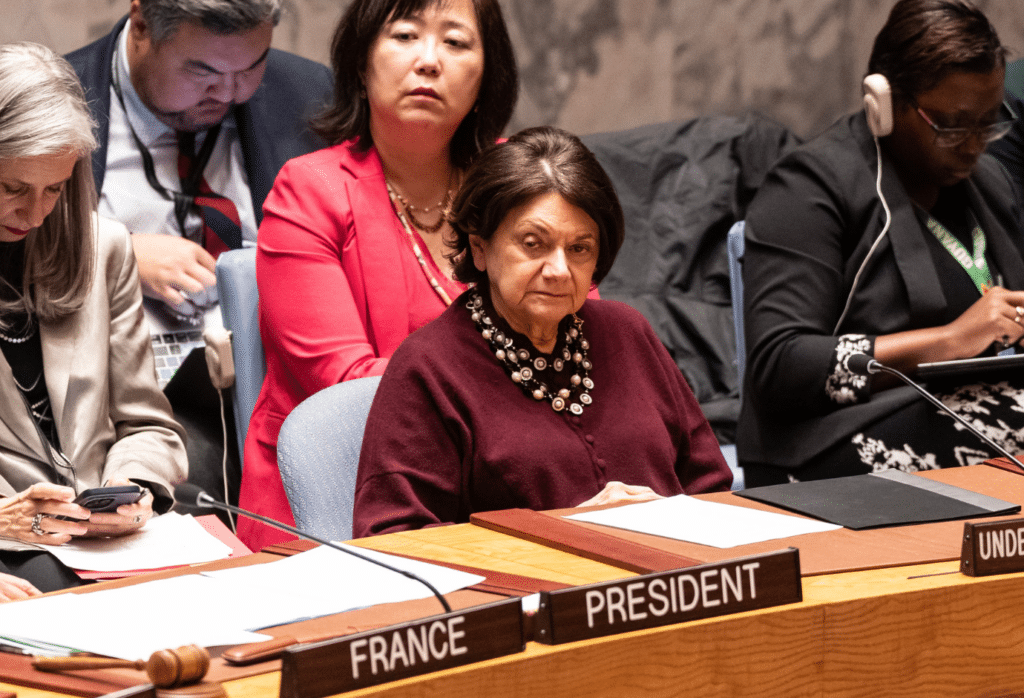The Taliban have issued a statement to the West advising them to turn a blind eye to the human rights violations they have imposed on Afghan women and girls in the interest of boosting foreign relations.
On Sunday, a UN-led conference of global envoys included the Taliban for the first time with the aim of engaging the Afghan government “to seek understanding and resolve issues” such as counterterrorism, Russia and China.
During the two-day conference in Doha, Qatar, chief spokesman Zabihullah Mujahid said the Taliban’s religious and cultural values “must be acknowledged” to aid any future bilateral relations.
Mujahid said that the Taliban hoped to discuss economic issues and international sanctions affecting Afghanistan. He also added that Taliban authorities “acknowledge the issues about women,” though added that “these issues are Afghanistan’s issues.”
Human rights organisations and women’s groups in Afghanistan have criticised the decision to exclude them, as it sets “a deeply damaging precedent”, Agnès Callamard, the secretary general of Amnesty International, said in a statement.
“[The decision] risks legitimatising their gender-based institutional system of oppression,” she said. “The international community must adopt a clear and united stance: The rights of women and girls in Afghanistan are nonnegotiable. They must be at the heart of the UN-convened meeting in Doha which should result in their restoration.”
The decision to exclude Afghan women from the meeting was also criticised by Nobel laureate Malala Yousufzai, who posted a statement on X to express her dismay. The 26-year old advocate said she spoke to U.N. Secretary-General Antonio Guterres about the Doha meeting, telling him she was “alarmed and disappointed” that the Taliban were invited to meet UN special envoys while Afghan women and rights groups were excluded from the main conversation.
“It is unacceptable for the UN to convene such a meeting without Afghan women in a central role,” she wrote. “It sends all the wrong signals.”
“We must be clear that what the Taliban are doing to women and girls in Afghanistan is a systematic erasure of rights, dignity and livelihoods that amounts to gender apartheid…any engagement with the Taliban that excludes half the population is a betrayal.”
The UN has defended its decision to comply with the Taliban’s restriction against women at the discussions, vowing that the issue of women’s rights would be addressed with the Taliban and that they would meet Afghan civil society representatives.
During a press conference last week, UN Undersecretary-General for Political and Peacebuilding Affairs Rosemary DiCarlo insisted that “the issue of inclusive governance, women’s rights, human rights writ large, will be a part of every single session.”
“I want to emphasise – this is a process,” she said. “We are getting a lot of criticism: Why aren’t women at the table? Why aren’t Afghan women at the table? Why is civil society not at the table? This is not an inter Afghan dialogue. I would hope we could get to that someday, but we’re not there.”
She added that the meeting was “not a meeting about recognition.”
“This is not a meeting to lead to recognition … Having engagement doesn’t mean recognition,” DiCarlo told reporters. “This isn’t about the Taliban. This is about Afghanistan and the people.”
In June 2023, the UN envoy for Afghanistan warned the Taliban that international recognition as the country’s legitimate government would remain “nearly impossible” until the restrictions on women are lifted.
Since the Taliban took over the country in August 2021, Afghan women have been denied the most basic human rights in what has been described as gender apartheid. Women and girls have been banned from receiving an education, and women are largely prohibited to participating in the workforce. They are prohibited from moving freely around the country and cannot access many public spaces including parks and recreational spaces.
On Sunday, the chief spokesman of the Taliban remarked that political relations between regional countries have improved, citing the case of Kazakhstan which has removed the organisation from its list of prohibited groups.
“I do not deny that some countries may have problems with some measures of the Islamic Emirate,” Mujahid said. “I think that policy differences amid states are natural, and it is the duty of experienced diplomats to find ways of interaction and understanding rather than confrontation.”
He failed to comment on the human rights abuses of women and girls in Afghanistan, saying: “Consequently, other nations, particularly Western countries, can remove the obstacles hindering the development of relations with the Afghan government.”


